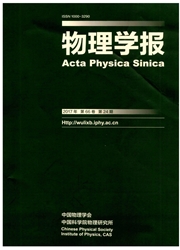

 中文摘要:
中文摘要:
基于开路热刺激放电电流和电荷等温衰减测量系统地研究了等温结晶化条件对氟化孔洞聚丙烯(PP)膜电荷稳定性的影响.结果表明等温结晶化温度和时间对氟化PP膜的电荷稳定性或电荷陷阱的构造具有显著的影响,即使90℃,0.5h的等温结晶化处理也能显著地加深其电荷陷阱、改善电荷的稳定性.而且随着等温结晶化温度的提高和时间的延长,电荷陷阱进一步被加深、电荷稳定性进一步被改善,如130℃,2h以上的等温结晶化情形.衰减全反射红外分析和宽角X射线衍射分析表明,电荷稳定性的改善归因于PP膜的组成和结构变化.
 英文摘要:
英文摘要:
On the basis of the measurement of open-circuit thermally stimulated discharge current and isothermal charge decay, the influence of isothermal crystallization conditions on charge stability of fluorinated cellular polypropylene (PP) film was systematically investigated. The results indicate that the time and temperature of isothermal crystallization of the fluorinated PP film have significant influences on its charge trap structure and charge stability. Charge traps and charge stability can be significantly deepened or improved even by isothermal crystallization at 90 ℃ for 0. 5 h. And with the increase of crystallization temperature and time,charge traps are deepened further,presenting further improved charge stability,as observed in the case of isothermal crystallization at 130 ℃ for more than 2 h. Attenuated total reflection infrared analysis and wide angle X-ray diffraction measurement indicate that the improvement of charge stability results from the changes in chemical composition and structure of the PP film.
 同期刊论文项目
同期刊论文项目
 同项目期刊论文
同项目期刊论文
 期刊信息
期刊信息
